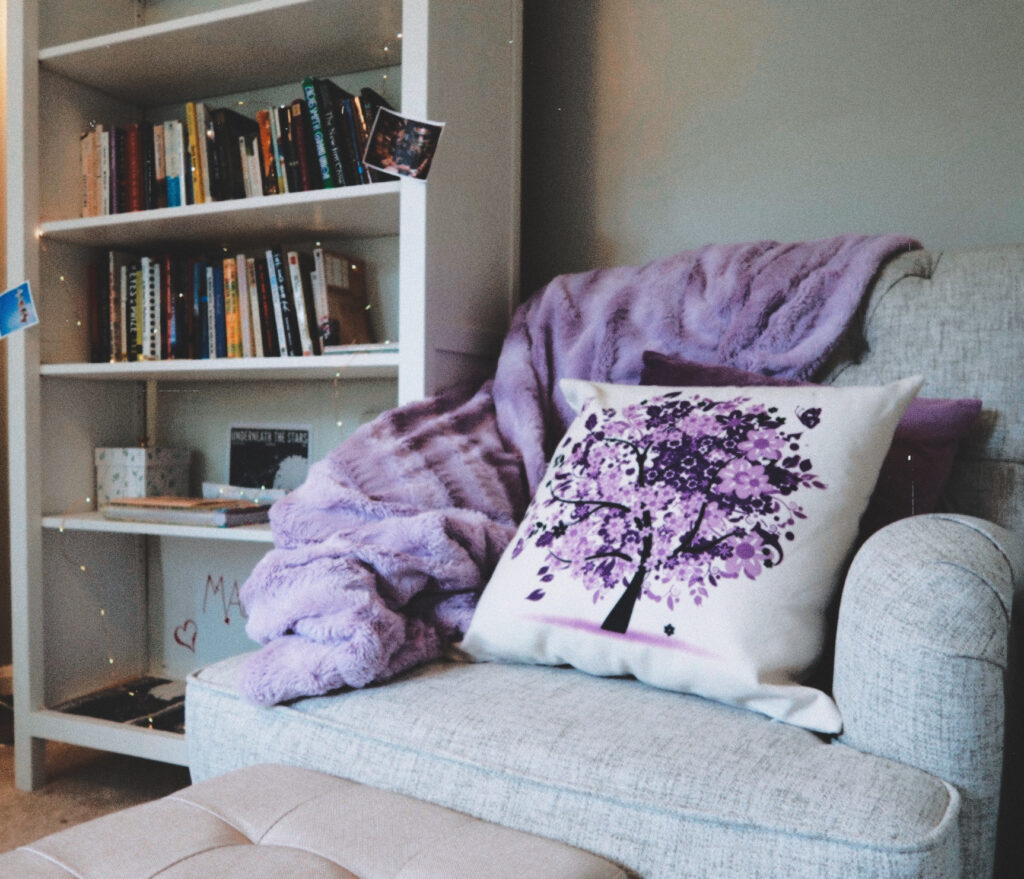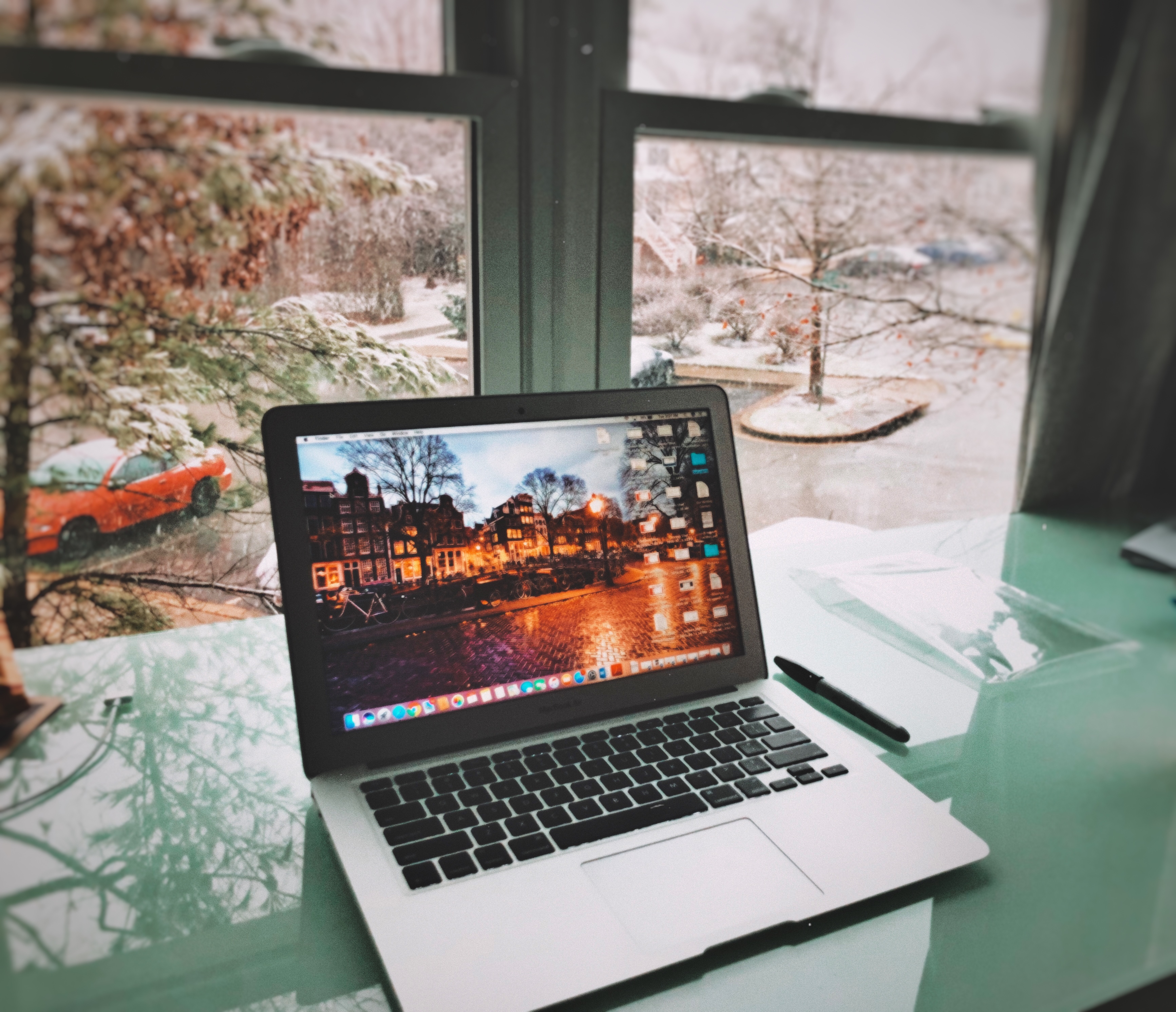Whether you like to write short stories, screenplays, or novels, you’ve probably found yourself working on your projects whenever, and wherever, you can. Perhaps you try to write your poems in the living room while your roommates watch television. Or, maybe, you write at the dining table while your younger siblings run around the house. You may even keep all of your journals and notebooks cluttered chaotically behind the closed door of your bedroom.
Wherever we work, the fact of the matter is that the spaces and environments that we create in are more important than we realize. In fact, finding a specific place dedicated solely to your creative pursuits can wildly improve the efficiency with which you work, and even improve the quality of your creations.
Below you’ll find a list of why having a dedicated office space is so important, the specific ways that it can benefit you, and tips on how to find the perfect environment to work on your projects.
Identifying Your Workspace
The best place to start when choosing your workspace is to evaluate the space that you already have available to you. Perhaps the most obvious example of a personal workspace is the home office: a single room in your house where you can shut the door, set up a desk, and get to work. Having this amount of space for yourself can be very useful, however it’s common knowledge that not everyone does, and in this case, you’ll just need to get a little more resourceful.
For example, if you already have your own bedroom, and it’s big enough, you can set up a desk in the spare corner or by the window. Or, maybe you have a back patio or an empty basement that no one uses, these are spaces you can claim as your office as well.
Once you start really gauging your current living situation, you’ll discover that places you’ve never considered before could, in fact, make the perfect office for you to create in. You can do it “Harry Potter” style and designate a spacious walk in closet as your creative workspace. Or, you can find some tiny nook in the hallway and set up shop there. Even Stephen King, in his book “On Writing,” admitted that he completed his first two novels in “the laundry room of a double-wide trailer.” Frankly, it doesn’t matter how fancy the space is, as long as it’s a space that you can call your own.

Some Alternatives
Of course, not everyone is in the fortunate position to have an entire room or basement to themselves. In that case, there are a few alternatives you can take advantage of in order to create a calm, productive, and distraction free work environment for yourself.
Some suggestions include:
Working in a Library
If you need a quiet space to edit your blog or write your screenplay, going to your local public library could be a great way to get some work done. Libraries are known for being quiet spaces for people to read, study, and work, and they are also full of helpful resources. Of course, it also doesn’t hurt that it’s free!
Choose a time and a day that you can go to the library every week and work for a few hours. This can help you set a routine for yourself, give you some fresh air and time out of the house, and encourage you to complete your goals for the week with little distractions.
Working at the Park
Another place you can try to get some work done is at the park. Many parks have quiet seating areas where you can work while enjoying the outdoors and people watching. This might be a good choice if you live in an area with nice weather and enjoy being outdoors. Locate a park near you, find a nice bench or picnic table, and make a promise to yourself to return to that same location routinely.
Working in a Coffee Shop
Although this one is somewhat of a cliché for writers, a coffee shop can actually serve as a great creative workspace. Coffee shops are known to be on the quieter side with a chill vibe, and if you can find a quaint little shop near you with a positive energy, it’s definitely worth giving it a try.
Of course, you can also enjoy a nice steaming cup of coffee while you work, which can help to keep you energized and focused!
Working on the Train or Bus
This option is perhaps the costliest out of all these suggestions, but I wanted to mention it here as many professionals site this as their strategy when pursuing their creative goals.
If you ride the bus every day to and from work, you can already start doing this! Just start bringing your laptop or notebook (or whatever other tools you need) with you, and while you ride the bus you can use that time to look out the window, brainstorm, and get some ideas down.
Another option if you have the time and money is to buy a train ticket to another city. This is a nice way to get out and explore, and you can use those three (or more) hours of space, quiet, and fast passing views of the outside world to work on your project.
Bottom Line: Find What Works Best for You
It goes without saying that some of the options listed above may not work for all entrepreneurs, however if you’re in a profession similar to writing, video editing, or website designing, trying any one of these locations could be really beneficial to you and your work output.
It’s important to keep track of what your needs are and which environments you work best in. And, if all else fails, you can always use the Shonda Rhimes technique and just put a pair of noise-canceling headphones on wherever you are and blast something loud in your ears to keep the rest of the world at bay.
Benefits of Having Your Own Workspace
Minimizes Distractions
Having an office or a studio exclusively for your own use can help keep you from being distracted. Being able to lock yourself in a room away from your roommates, family, television, or other distractions can keep you from losing focus on your work, as well as encourage others to respect your space and your time.
With less distractions you may find that it’s easier for you to get your ideas out and work more productively.
Helps You Create a Routine/Good Habits
Another way that it can be beneficial to have your own designated workspace is that it helps you create a routine for yourself. If you have a designated place to go everyday where you sit down and work, soon your mind will begin to associate that space with creating, and it will become easier for ideas to form once you’re there.
Stephen King discussed this in his book, “On Writing,” where he compared having an office space for writing to having a bedroom for sleeping. He stated that “like your bedroom, your writing room should be private, a place where you go to dream. Your schedule…exists in order to habituate yourself, to make yourself ready to dream just as you make yourself ready to sleep by going to bed at roughly the same time each night and following the same ritual as you go.”
Essentially, when you only go into your bedroom to sleep, your training your mind to more easily drift off into unconsciousness when you’re in that space. That same concept is applied to having a dedicated creative workspace: it will become easier for you to unleash your imagination once you enter your office.
Additionally, once you start working in this space enough, it will likely become a habit for you. Just like if you go for a run every morning, the one day you don’t go, you’re likely to feel like your whole day is off. That’s the idea of the workspace. If you go into your workspace everyone morning and sit down to work, your body and mind will get used to this. This is how you create a routine for yourself, encourage healthy habits, and get used to being creative on a set schedule.

Helps you Take Your Passions More Seriously
Another way having a workspace can be useful is that it can make you begin to see your passion as not simply a hobby, but as an actual career.
Once you possess the intention to transform your passion into a profession, it will become imperative for you to allow yourself the necessary space to grow as an artist, and you have to be willing to make that investment.
Once you give yourself a dedicated space to work on your craft, it can help you make the mental transition to seeing your work as a true profession, and this can help you build confidence, which can reflect in the quality of your work and the proficiency in your execution.
Concluding Thoughts
In all honesty, it doesn’t really matter where your workspace is or what it looks like; whether it’s in your mother’s basement, or in the corner of your local coffee shop, is beside the point. What’s important is that you start thinking of ways you can improve your current working conditions by experimenting with the environments you are most comfortable and productive in. Once you take this step, there is no limit to what you can create.
0